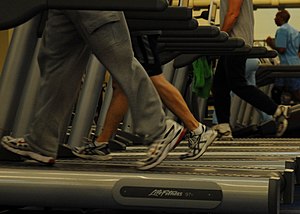AGING GRACEFULLY
Integrity vs. Despair
Some may say, “What’s that all about?” And some may find this very familiar. According to theorist, Erik Erikson, “Integrity vs. Despair”, is the final psychological stage of development and life. Erikson believes that as we age and mature, our goal should be to move successfully from one stage to the next. In each stage, a person confronts and, hopefully, masters new psycho social challenges. Each stage builds on the positive completion of the previous stages. It is indicated, that by reaching “Integrity vs. Despair”, we have mastered the previous 7 psychological stages.
My thought is that this final stage of life is the most important one. This is the last chance we have to make our lives meaningful and to correct any mistakes we may have made in the past. This stage occurs during late adulthood (age 60 years and older). As we enter this stage we have a heightened sense of mortality. This may be due to our changing social roles. There may be less parenting responsibilities, or the retirement and / or death of a spouse or close friends. We may also feel the physical problems that come with aging such as illnesses, which limit the way we function physically and mentally.
People who struggle with this stage of life are said to be in despair. They become preoccupied with the past and their failures. They regret all the bad decisions and realize they have little time or energy to reverse them. People in despair often become depressed, spiteful, paranoid, hypochondriacal, and can develop patterns of senility with or without physical basis.
People with integrity have come to terms with their life and with the thought of the end of life. They can look back on their lives and feel comfortable with the course of events and the choices they have made along the way. They have learned from their failures and still maintain a sense of hope and trust in the future. We have all made mistakes, some more serious than others; yet if you hadn’t made these mistakes you wouldn’t be who you are. If you play it too safe and made few mistakes, your life may not be as rich as it is.
The good news is that I have seen many older adults in this last stage of life actually turn despair into integrity. They have the opportunity to review their life, the good and the bad, and to find a way to resolve burdens or problems that have left them in despair. Having worked with the elderly for over 30 years, I marvel at the ability and strength we have in our last years. If we are unable to solve issues on our own, there are many resources available to help you work through this difficult time. If possible, reaching out to family is a great start. Clergy, counselors and doctors are also very helpful in assisting someone to find satisfaction in their life. To find peace within yourself is definitely worth the effort.
Erikson states that someone who approaches death without fear has the strength called wisdom. He also adds that this is a gift to our children because “healthy children will not fear life if their elders have integrity enough not to fear death.” We should all try to make our life the best it can be and work to find the integrity we have within.
Submitted by Carol McKee, RN, Farrar Home Administrator

























